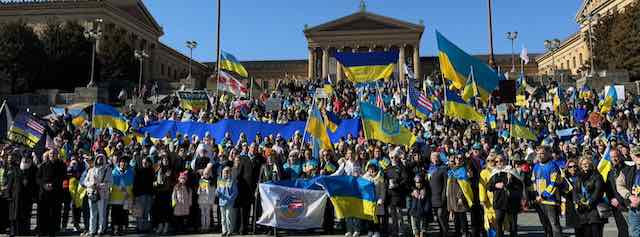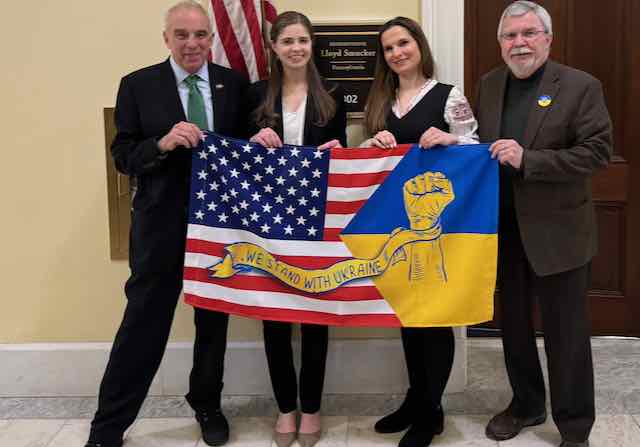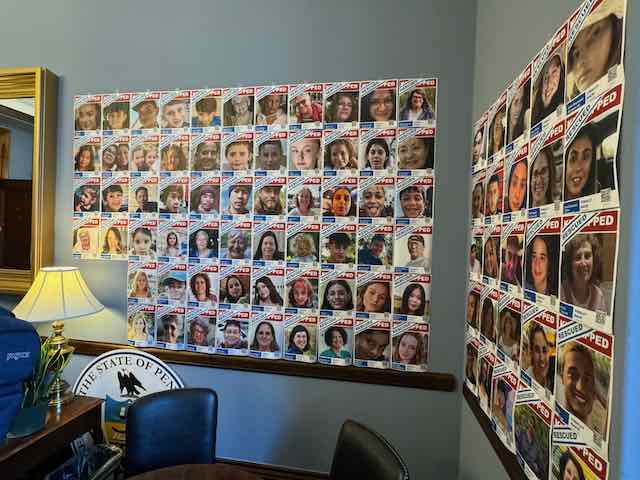His answer surprised and delighted me. Although I have read widely in Jewish, Christian and Buddhist literature, Hindu teachings never attracted my interest. But Yogi Sadhguru could be Rabbi. He has such clarity. If you are interested, you can either listen to the YouTube video above or read the transcript below.
Isn't it fantastic that if there's no purpose, you have nothing to fulfill, you can just live?
No, but you want a purpose? And not a simple purpose.
You want a God-given purpose. It's very dangerous.
People who think they have a God-given purpose are doing the cruelest things on the planet.
Yes or no.
They are doing the most horrible things and they've always been doing the most horrible things because when you have a God-given purpose, life here becomes less important than your purpose.
My life is important. Life is important. When I say life. I'm not talking about your family, your work, what you do, what you do not do at your party. I'm not talking about that.
A life, this is life, isn't it? Life is within you or around you. The ambiance of life. You are mistaking the ambiance of life for life, your home, your family, your workspace, your party. This is all ambience of life. This is. Not life, isn't it?
Yes or no.
You're mistaking the ambiance for the real thing, no? Life is important. Because that's the only thing you know. You don't know anything else. Do you know something else? Rest is all imagined stuff, isn't it the only thing there is? That this is being and alive and that's all there is. So, is this important?
It is of paramount importance. Not you as a person. That's not important, but you as a piece of life is very important. Because that is the basis of everything. When I say that is the basis of everything in the universe exists for you. Only because you are, isn't it?
Yes or no.
The world exists for you only because you are otherwise it won't exist. In your experience. So, in every way, this is important. So, what is the purpose of this?
See if you had a purpose and if you fulfilled it after that, what would you do? After that, what would you be bored? It is just that life is so intricate and so phenomenally intricate. That if you spend 10,000 years looking at it carefully; you still will not know it entirely. If you spend a million years looking at it. With absolute focus still you will not know it in its entirety. That's how it is.
Is there a meaning to it? The greatest thing about life is that there is no meaning to it. This is the greatest aspect of life that has no meaning to it, and there is no need for it. To have a meaning. It's the pettiness of one's mind. That it is seek a meaning. Because psychologically you will feel kind of unconnected with life. If you don't have a purpose and meaning.
People are constantly trying to create these false purposes. Now they were quite fine and happy. Suddenly they got married. Now the purpose is. The other person. Then they have children. Now they become miserable with each other. Now the whole purpose that I go through, all this misery is. Because of the children. Like this it goes on. These are things that you are causing and holding as purposes of life.
And is there a God-given purpose? What if God does not know you exist? No, I'm just asking by chance. I'm saying in this huge. Which God is supposed to be the creator and the manager of these 100 billion galaxies, in that this tiny little planet? And you suppose he doesn't know that you exist? What to do? Possible, or no? I'm sorry I'm saying such sacrilegious things. But is it possible, or no?
What if he doesn't know that you exist? What if he doesn't have a plan for you? Suppose he doesn't have a plan for an individual plan for you. Don't look for such things. The thing is the creation is made in such a way.
That creation and creator cannot be separated. Here you are a piece of creation at the same time, the source of creation is throbbing within you. If you pay little attention to this process of life, you would not need any purpose. It will keep you engaged for a million years.
If you want.
There is so much happening. So much means so much unbelievable things are happening right here. If you pay enough attention. A million years of existence, it will keep you busy. Or more.
Right now the need for purpose is come because you are trapped in your psychological structure, not in your life process. Your psychological structure functions from the limited data that it's gathered within that it rolls. And right now.
Your thought and emotion has become far more important than your life, isn't it? So isn't it so? So because of this you seeking. A purpose as an. Escape from the trap that you have set for yourself. It is a trap set by you. You can easily come out of it. If the trap was set for you by somebody else, difficult to come out because they'll set the trap in such a way that you cannot come out, isn't it? I'm talking about life, not marriage.
So this is a trap set by you. This is easy to come out, but that is the whole thing. Why it is so difficult is now you're identified with the trap.
You like it.
You like it because it gives you a certain sense of safety and security and protection and individual identity if you. Build a cocoon around yourself. It gives you safety, but it also imprisons you. Walls of self preservation or also walls of self imprisonment. When it protects you, you like it. When it restricts you, you do not like it.
That is why we have doors. We like the wall because it's protecting us. But we have doors, so that way we can open it and get out when we want to. It doesn't matter how nice it is, we still want to go out, isn't it? So that is how it is with every trap that you set. It doesn't matter how nice it is, you still want to go out.
So the psychological wall that you have built which gives you some sense of identity, which gives you some sense of being a person, an individual person, and which gives you security. Beginning to experience it like a trap somewhere, you want to break it. So one way of not breaking it is to find a purpose.
Those who find a purpose in their life, they become so conceited.
They will live within their own traps forever, thinking that they're doing the most fantastic thing. First thing you need is balance. If you have balance. Then you can try if you don't have balance it's better you stay on the ground. It's not safe for somebody who is not balanced to climb high. It's best you stay close to the ground.
You should not climb.
So first thing is to establish a balance. Then you're losing your psychological structure. Then you're losing your psychological structure without balance, which lot of people are doing today.
Why does somebody want to drink alcohol or take a drug. Because it loosens your psychological structure. And makes you feel liberated for a moment but without the necessary balance. You have not worked for the balance, but you got freedom. Freedom without balance is destruction. Anarchy, isn't it?
So first thing is to work for is balance an enormous sense of balance. Where even if you dismantle your psychological structure, you can simply live here, dismantling your psychological. Structure is an important process because that is your trap. That is your security. That is your stability. At the same time, that's your trap. Because the walls are set, you feel secure, but that's also your trap.
If you dismantle your trap. You also dismantle your security, isn't it? You also dismantle your sense of purpose. You also dismantle everything that matters to you. So that will need balance without balance if you dismantle it you will go crazy.
But don't look for a purpose because if you look for a purpose you're seeking madness. If you find one. You are surely mad? If you think you found a purpose in life you for sure have gone crazy. Because only the insane people have purpose. People who have purpose are insane in many ways. These are things that you create in your mind and believe it's true, isn't it?
Right now, fighting for my country is my purpose. Right now, if it's necessary, I will fight knowing fully well it's an unnecessary bloody fight. Just then you will fight only to the extent it's necessary. If you think this is your purpose you would want to destroy the whole world for. What nonsense you believe in, isn't it? Something is needed. We'll do it. With absolute involvement, there's no other purpose.
The purpose of life is to live and to live totally. To live totally does not mean party every night to live totally means before you fall dead every aspect of life has been explored. Nothing has been left unexplored. Before you fall dead even if you do not explore the cosmos, at least this piece of life, you must know it in its entirety. That much you must do to yourself, isn't it? That's living totally. That you experienced the whole of this, all dimensions of what this is. You did not leave anything untouched. You just do that. That will take a long time.
That's enough. A good enough purpose for you.





















































